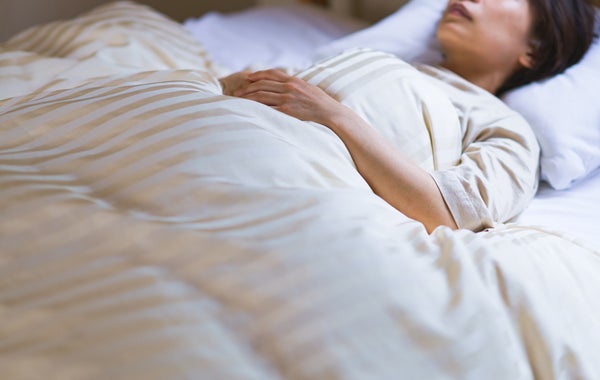How the Brain Summons Deep Sleep to Speed Healing
November 1, 20243 min readHow the Brain Summons Deep Sleep to Speed HealingA heart attack unleashes immune cells that stimulate neurons in the brain, leading to restorative slumberBy Mariana Lenharo & Nature magazineAmple sleep after a heart attack dampens inflammation in the organ, aiding recovery. show999/Getty ImagesImmune cells rush to the brain and promote deep sleep after a heart attack, according to a new study involving both mice and humans. This heavy slumber helps recovery by easing inflammation in the heart, the study found.The findings, published on October 30 in Nature, could help to guide care for people after a heart attack, says co-author Cameron McAlpine at the Icahn School of Medicine at Mount Sinai in New York City, who studies immune function in the cardiovascular and nervous systems. Getting sufficient sleep and rest after a heart attack is important for long-term healing of the heart, he notes.The implications of the study go beyond heart attack, says Rachel Rowe, a specialist in sleep and inflammation at the University of Colorado Boulder. For any kind of injury, your bodys natural response would be to help you sleep so your body can heal, she says.On supporting science journalismIf you're enjoying this article, consider supporting our award-winning journalism by subscribing. By purchasing a subscription you are helping to ensure the future of impactful stories about the discoveries and ideas shaping our world today.The heart needs its sleepScientists have long known that sleep and cardiovascular health are linked. People who sleep poorly are at a higher risk of developing high blood pressure, for example, than are sound sleepers. But how cardiovascular disease affects sleep has been less explored.To learn more, the authors induced heart attacks in mice and investigated the animals brainwaves. The researchers found that these mice spent much more time in slow-wave sleep a stage of deep sleep that has been associated with healing than did mice that hadnt had a heart attack.Next, the authors sought to understand what was causing that effect. One obvious place to look was the brain, which controls sleep, notes McAlpine. After a heart attack, immune cells trigger a massive burst of inflammation in the heart, he says, and the researchers wondered whether these immune changes also occurred in the brain.The team found that, after a mouses heart attack, immune cells called monocytes flooded its brain. These cells produced large amounts of a protein called tumour necrosis factor (TNF), which is an important regulator of inflammation and also promotes sleep.To confirm that these cells were linked to the increased sleep, researchers prevented monocytes from accumulating in the rodents brains. As a result, the mice no longer had this increase in slow-wave sleep after their heart attack, McAlpine says, supporting the theory that the influx of monocytes to the brain contributes to the post-heart-attack sleep boost. Similar experiments confirmed TNFs role as a messenger to sleep-inducing brain cells.Slumbering towards recoveryTo understand the purpose of the extra sleep, the researchers repeatedly interrupted slow-wave sleep in mice that had had a heart attack. The team found that these mice had more inflammation in both the brain and the heart, and had a much worse prognosis than mice that were allowed to sleep undisturbed after a heart attack.The authors also studied humans who had experienced acute coronary syndrome, a term for conditions, including heart attack, that are caused by a sudden reduction of blood flow to the heart muscle. Those who reported poor sleep in the weeks following such an episode had a higher risk of developing heart attacks and other serious cardiovascular problems over the next two years than did those who were good sleepers.Given the findings, clinicians need to inform patients of the importance of a good nights sleep after a heart attack, says Rowe. This should also be considered at the hospital, where tests and procedures would ideally be conducted during the daytime to minimize sleep interruptions.She adds that the findings highlight the bidirectional relationship between sleep and the immune system. When your grandma says, if you dont get enough sleep, youll get sick, theres a lot of truth to that.This article is reproduced with permission and was first published on October 30, 2024.


